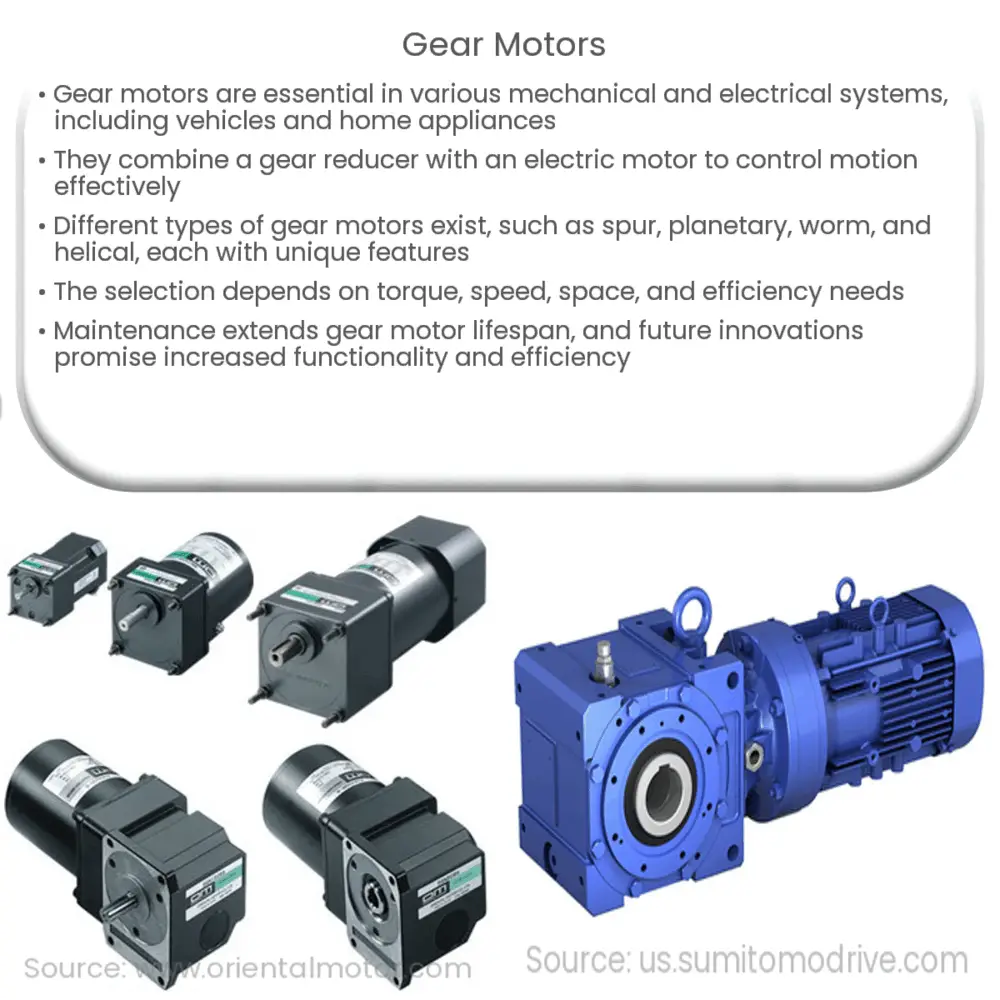Explore the basics of gear motors, their types, selection criteria, maintenance, and future potential in our detailed guide.

Gear Motors: An Integral Component in Modern Mechanical Systems
Gear motors are crucial components in many mechanical and electrical systems, with applications ranging from automotive industries to home appliances. These specialized devices combine a gear reducer with an electric motor, seamlessly integrating the components to deliver a comprehensive motion control solution.
The Basic Principle
The concept behind gear motors is relatively simple, yet ingeniously effective. The electric motor generates rotational power, known as torque. This torque is then distributed and controlled by the gears, thereby achieving the desired speed and force. This basic principle allows gear motors to perform an array of complex tasks efficiently.
Components of a Gear Motor
- Electric Motor: This is the primary source of power. It can be an AC (Alternating Current) or DC (Direct Current) motor, depending on the application.
- Gearbox or Gear Head: This component is used to adjust the output speed and torque. The gearbox contains several gears that interact to reduce the speed and increase the torque.
- Shaft: The shaft is the part that extends from the gear motor and physically connects it to the machine or device it is driving.
Types of Gear Motors
There are several types of gear motors, each with unique features and applications. A few prominent ones are as follows:
- Spur Gear Motors: Known for their simple design and efficient operation, spur gear motors are often used in low-speed, high-torque applications.
- Planetary Gear Motors: These are compact, high-efficiency motors suitable for applications requiring high torque and precise speed control.
- Worm Gear Motors: Worm gear motors offer a high torque output and are often used where space is limited.
- Helical Gear Motors: They are known for their smooth operation and high torque capabilities. They’re widely used in heavy-duty applications.
In conclusion, gear motors are a versatile and essential component in a wide array of applications. Whether it’s adjusting the spinning speed of a washing machine drum or controlling the movement of a large industrial robot, gear motors play a critical role in our everyday lives.
Selection of Gear Motors
Selecting the right gear motor for a particular application is a crucial step in designing any mechanical system. Various factors influence this choice, including torque and speed requirements, physical constraints, and cost considerations.
- Torque and Speed: Understanding the required torque and speed is key. High-speed operations usually demand low torque, while low-speed operations need high torque.
- Size and Space Constraints: The physical size of the gear motor and the available space in the design must be considered. Compact gear motors like planetary and worm gear motors are perfect for tight spaces.
- Efficiency: The overall efficiency of the system is another factor to consider. More efficient gear motors consume less power, reducing operational costs in the long run.
Maintenance and Durability
Maintenance and durability of gear motors are vital considerations. These components are designed to be robust and can endure rigorous usage over extended periods. Regular inspection and maintenance, such as lubrication and cleaning, can further extend the life span of gear motors and ensure optimal performance.
The Future of Gear Motors
The future of gear motors is promising, with advancements in technology opening up new possibilities. For example, the integration of smart technology and IoT (Internet of Things) in gear motors allows for remote control and predictive maintenance, reducing the downtime and improving the system’s overall efficiency.
Conclusion
In summary, gear motors are fundamental components in a multitude of applications, extending from domestic appliances to industrial machinery. Their design and function are simple, yet they perform critical tasks that make modern life possible. With evolving technology and innovative engineering, the capabilities of gear motors are bound to extend even further, reinforcing their indispensable role in our everyday lives and industries.

